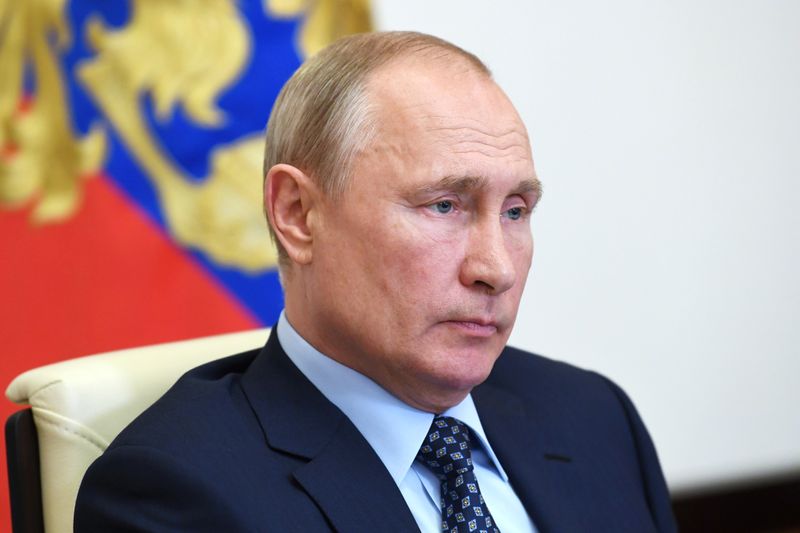MOSCOW (Reuters) - Remote electronic voting on constitutional changes that could greatly extend Russian President Vladimir Putin's rule will be used in three or four regions but not rolled out nationwide, the Central Election Commission chief said in an interview.
Putin signed a decree, published on Saturday, that would allow remote and online voting to be introduced at the federal level, with sponsors of the bill saying the coronavirus outbreak had made the changes necessary.
In March, Putin postponed a vote on constitutional amendments, already approved by parliament and Russia's Constitutional Court, that would reset his presidential term tally to zero, permitting him to serve two more back-to-back, six-year terms until 2036.
In an interview published by Rossiskaya Gazeta late on Sunday, elections chief Ella Pamfilova said initial trials and testing would be needed before electronic balloting. "Remote voting will not be carried out on a national scale. We are talking about no more than three or four regions."
Originally scheduled for April 22, the vote was postponed indefinitely in late March, with Putin citing the coronavirus epidemic as the reason for the move.
Pamfilova said in the interview with Rossiskaya Gazeta that the election commission was working off the assumption that Putin would name the date for the new vote one month in advance.
She said benefits of electronic voting include raising turnout, increasing the speed and accuracy of processing votes and lowering the cost of holding elections.
She added that introducing the new system would be gradual and require a strong network and computing infrastructure in place to ensure it can handle the demands of millions of citizens and potential hacking attacks.
